
26 Best Basecamp Alternatives For Project Management In 2023
Making sure you are using the best software for your projects is incredibly important not just from a productivity standpoint but a financial one – why spend money on functionality that you don’t use, and why settle for a program or application that doesn’t offer you everything you need to run your project as effectively as possible?
Choosing the proper project management tool can be tough however, as the amount of programs, apps and services available to the modern business can be overwhelming. In this article, we will review the best Basecamp alternatives for you and your team.
While Basecamp has been in the project management software space from the very beginning and offers a high quality service, it is expensive (starting at $99/month) and may not necessarily fill all of the niches your business needs to thrive. There are newer, and cheaper, alternatives built to specifically address the problems facing the modern business.
So if you feel like Basecamp isn’t filling your needs and that it might be time to level-up your productivity system, we’re here to help. Here are the best Basecamp alternatives on the market in 2023.
1. Hive
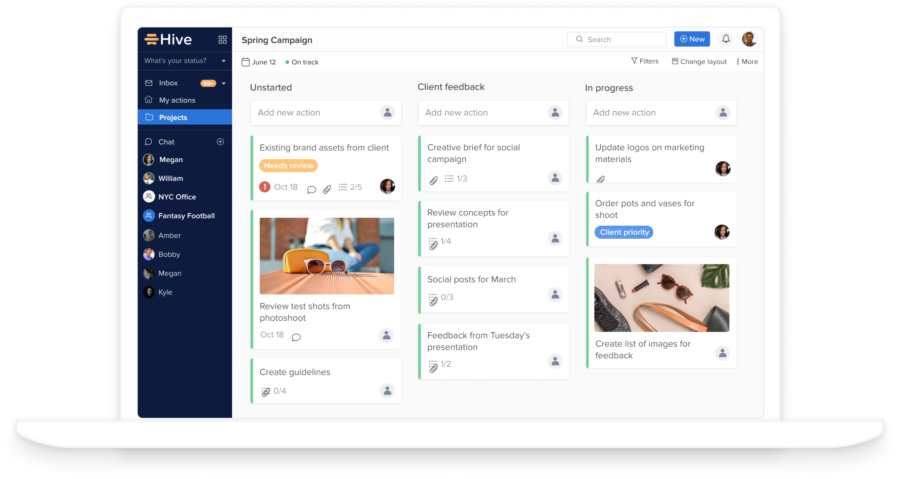
If you’re looking for a Basecamp alternative that has more functionality, then you’ll want to check out Hive. Hive walks the fine line between customization and usability, so you can not only have access to a whole host of tools, reports and functions, but you can also get set up and get started with very little downtime. Basecamp is definitely lacking in the customization arena, and does not offer custom charts, fields, or reporting, whereas Hive offers all of those. Check out a breakdown of Hive vs Basecamp here.
It’s also worth bearing in mind the focus on integration – you can integrate Hive with over 1,000 apps and programs, including native integrations with Salesforce and Gmail. And because integration is based on an app by app basis, you’re able to select which you’d like to integrate, and which you’d rather keep separate.
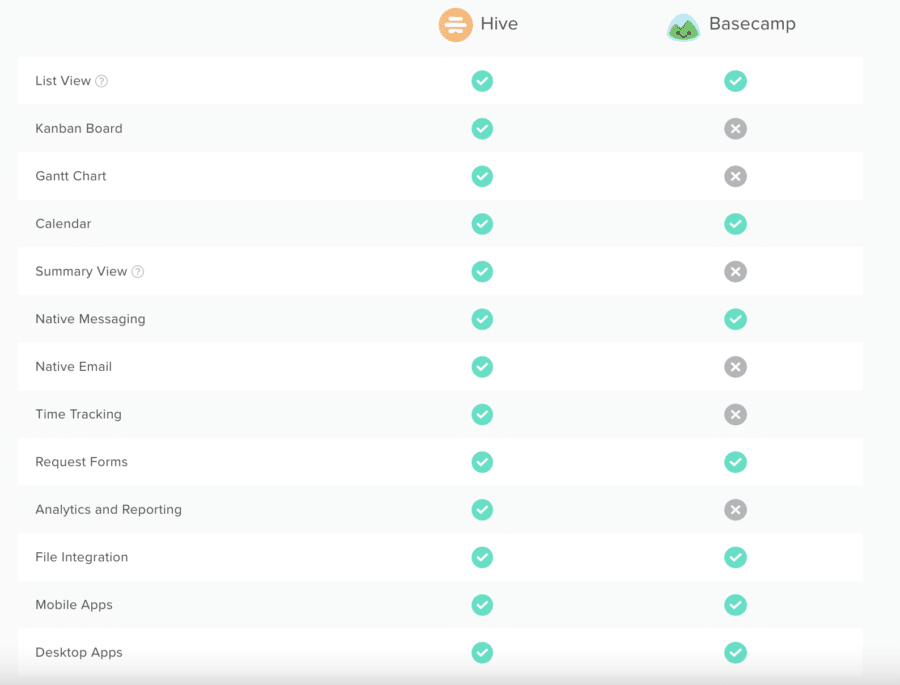
Because of the clean, scalable user interface Hive is a great pick for any size team. Smaller teams will love Hive chat and its emphasis on collaboration, and larger teams will appreciate how easy it is for the manager to define and display specific tasks, keeping communication clear and easy to follow at all times. We’re convinced that Hive is the top of the list for best Basecamp alternatives.
👉 Did you know that Hive just made Capterra’s list of top 9 project management platforms in the world? Get started for free today to see why Hive scored 100 out of 100 in popularity among its customers – the highest score of all tools on the market. It’s the only project management platform built for users, by users.
2. Trello
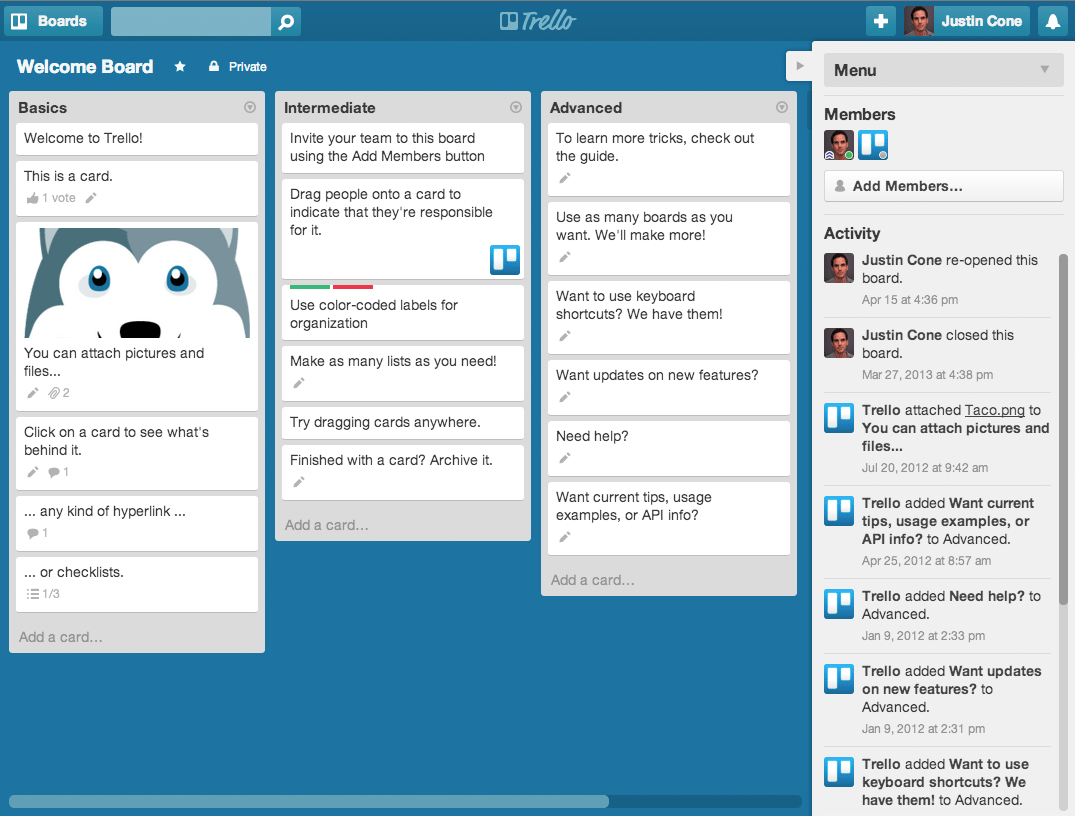
Trello is a simple, straightforward project management tool that has a clean, open user interface and hundreds of great collaborative integrations like Slack, Dropbox and Google calendar, similar to Basecamp. These tools help encourage teams to collaborate and discuss their way through the problems that the project needs to resolve. Trello uses boards and individual to-dos to organize tasks in a simple visual style — which can be a huge help when you need to know quickly what work is outstanding.
However, unlike Basecamp, Trello is free to use, which is great for smaller teams and individual users. But if you’re a medium to large sized business and you feel like you’re outgrowing Basecamp, you’ll likely run into similar issues with Trello, as the board view can be limiting and it’s hard to work cross-functionally.
To see how Trello stacks up against another tools on the market, check out our full guide to Trello alternatives.
3. Nifty
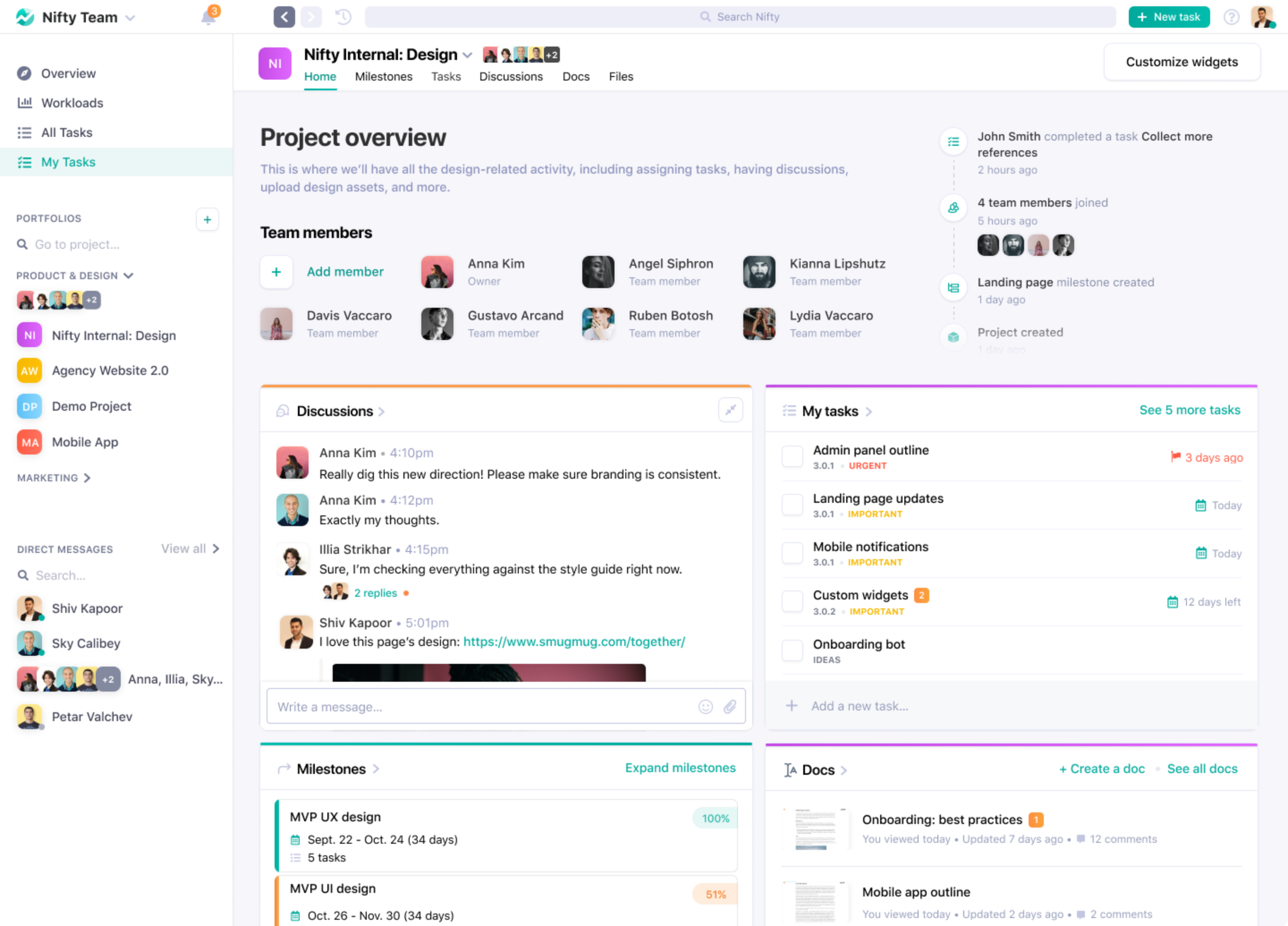
Nifty is a powerful, yet easy to use Basecamp alternative, and for good reason. Nifty’s range of features include built-in chat, roadmaps, document collaboration along with customizable task management — making it one of the most popular free agile project management tools in the space.
While Nifty includes a wide array of features you’d expect in a robust project management solution, its award-winning ease of use and collaboration options make it a popular tool for client facing teams as well. The free Guest role can participate in client projects by weighing in via chat and even completing tasks to give formal approvals. Nifty brings your team together with powerful set of features.
4. Podio
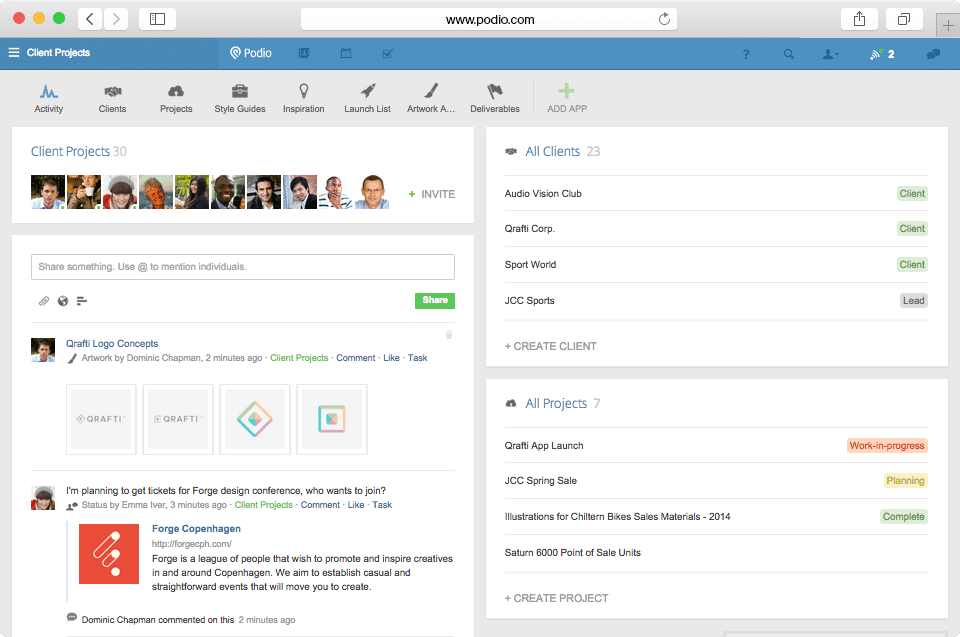
Moving on to a more scalable platform, Podio is worth considering as an alternative to Basecamp if you’re looking for a slightly more formal structure. Podio offers users a clean interface that is relatively customizable, and a focus on team collaboration and transparency. You’ll find it easier to generate and display reports, have your team display and discuss work via chat, and create project tasks.
As one of our top Basecamp alternatives, you’ll enjoy a wider range of customizable elements with Podio, particularly when it comes to individual team management and assignment to specific project tasks. This could become a downside however, as project management software needs to be something you can pick up and run with immediately — you don’t want to spend too much time customizing and setting up individual elements.
5. Wrike
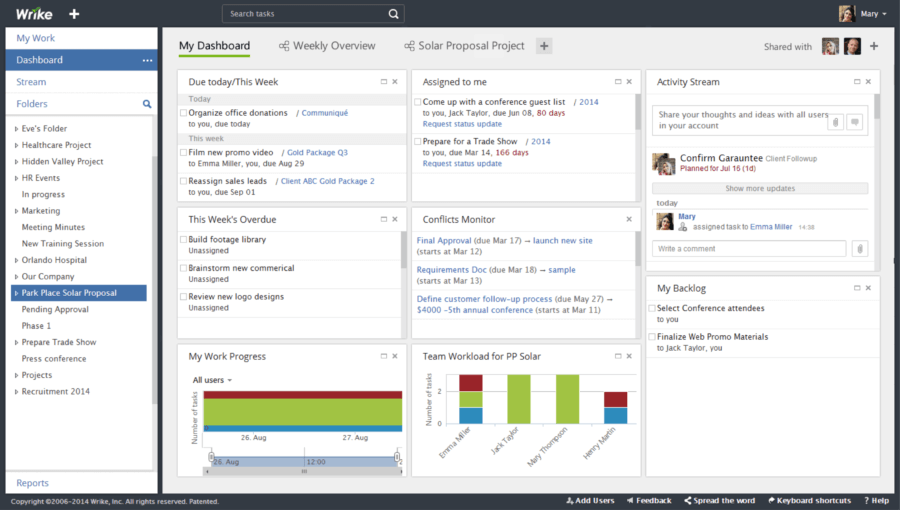
If you’re a mid to large-sized business, Wrike is a great option to take a look at. One of its primary concerns as a management suite is ensuring that new users can pick it up and put it to use as quickly as possible, and it has a great default layout with an emphasis on daily and weekly planning. All of your information is displayed in a series of neatly laid out information feeds, so you can tell at a glance what needs to be done and when.
As one of our top Basecamp alternatives, it’s a good choice if you’re in the market for additional features like custom reporting and custom forms. It’s also a cheaper alternative, and can be used for free for teams of up to five people. However, there are a few areas where Wrike is lacking, specifically in the chat and communication field, as it doesn’t have native chat.
To see how Wrike stacks up against another tools on the market, check out our full guide to Wrike alternatives.
6. Asana
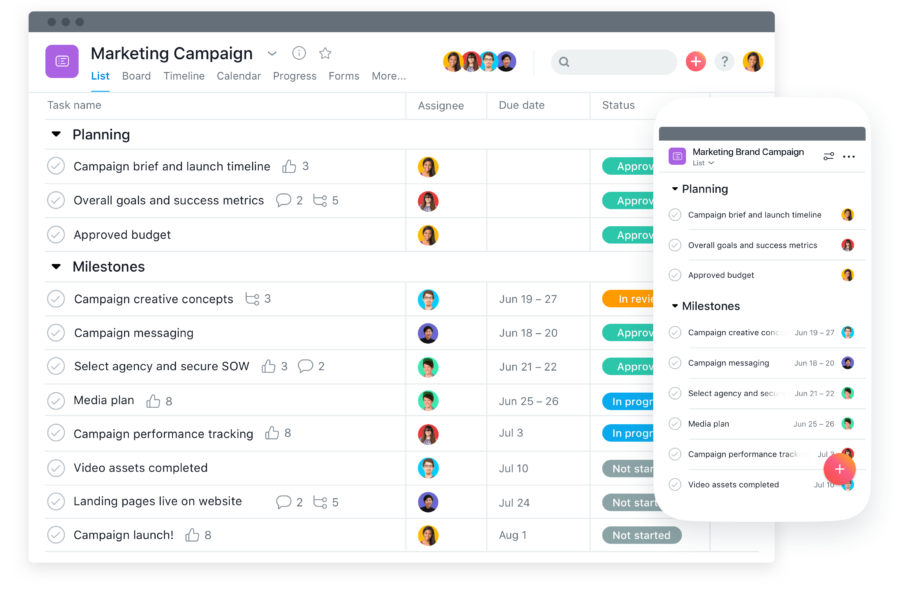
Asana is a comprehensive and visually appealing project management tool used by over 50,000 organizations around the world including National Geographic, Airbnb, Lyft and Spotify. The tool is built on tasks, which can be grouped into larger projects and assigned out to individual team members. Team objectives allow you to view progress on key initiatives over time, and “Workload,” a newer feature, allows you to map out each member’s workload over time.
If you’re looking for a less expensive option than Basecamp, Asana does have free accounts, and their paid accounts start around $9.99. Asana, similar to Hive, also offers much more extensive customization than Basecamp, including custom fields, charts and reporting. Asana also offers progress reporting and tracking, which are very useful when looking at project performance over time, which is part of the reason it tops our list of best Basecamp alternatives.
To see how Asana stacks up against another tools on the market, check out our full guide to Asana alternatives.
7. Liquidplanner
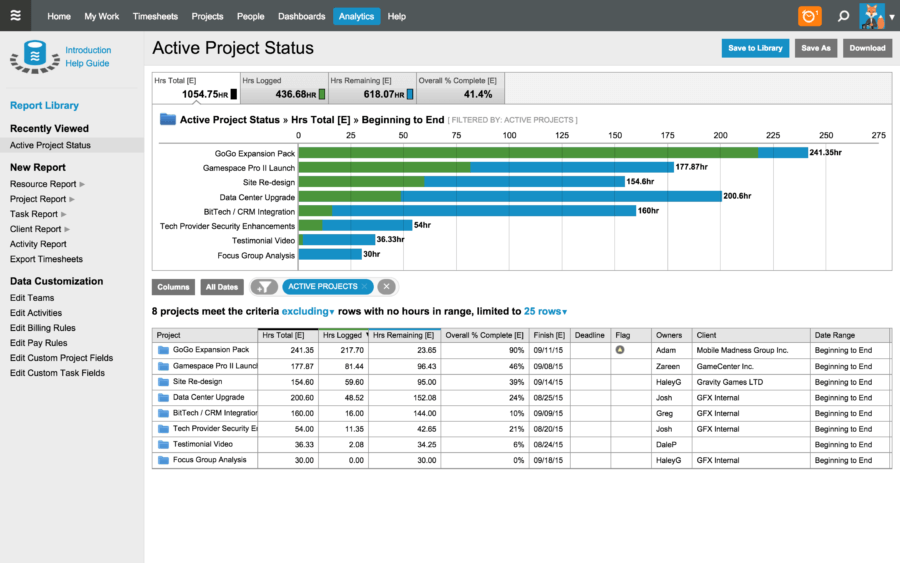
If integrations and increase functionality are what you want, then Liquidplanner is a very good choice. It offers users a huge range of tools aimed at filling the needs of larger businesses — if it can be tracked, planned, logged or listed you’ll be able to cover it in Liquidplanner. Large teams love it because it can be customized to a significant degree, allowing you to make detailed plans and define every aspect of your project in minute detail.
So if you’re ditching Basecamp because you’ve outgrown it, then Liquidplanner is a definite contender. However, this does mean it is not the proper choice for smaller, more creative teams, and if you’re looking for a more collaborative tool with a chat functionality, then Liquidplanner may not be for you. It’s also all too easy to drown in the details with Liquidplanner, making it easy to turn your project management software into a project of its own.
8. Monday
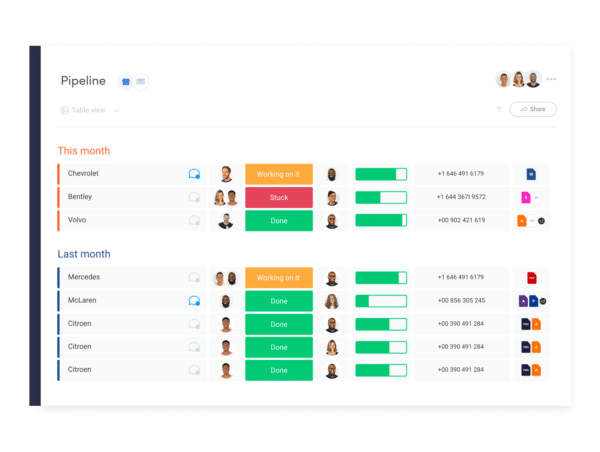
Basecamp and Monday are very similar at their core: they both help teams collaborate and stay organized online. In comparison to Basecamp, however, Monday differs mainly in its features and user experience. In terms of features, Monday has budget tracking, CRM functionalities, workload tracking, and reporting options that Basecamp does not have. In addition, Monday has more features built into the tool, where as Basecamp relies in integrations for most added functions.
Monday also has more viewing options than Basecamp does, which is helpful for teams who look at project developments in different ways. Both tools offer a variety of integrations, including common business tools like Zapier.
Both tools are in a similar price range, but Basecamp charges a flat $99 monthly fee for unlimited access, where as Monday has 4 different pricing plans based on number of users and custom features – that’s why it’s on our top Basecamp alternatives list.
9. Jira
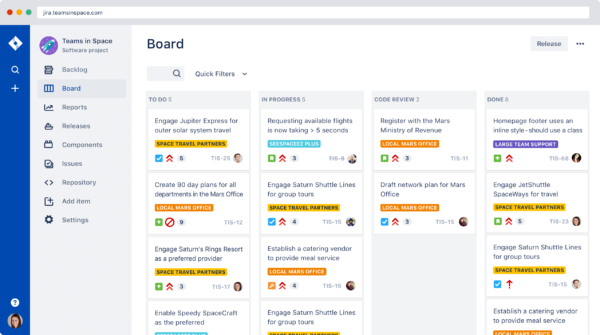
Jira is part of our list of best Basecamp alternatives because it works well for teams that need a more advanced project management tool, especially one that supports the agile development method. Jira offers several project views that Basecamp does not, include Kanban boards, Scrum boards, and roadmaps. This software is also great for software development teams, as it lets you connect issues directly to a certain aspect of code. It also integrates with many common developer tools, making it easy to trace your progress from beginning to end.
Unlike Basecamp, Jira offers a free basic software version for up to 10 team members. For larger teams and more advanced features, monthly subscription packages start at $7 per user per month. There is also an option to pay annually if that is your preference.
To see how Jita stacks up against another tools on the market, check out our full guide to Jira alternatives.
10. ClickUp
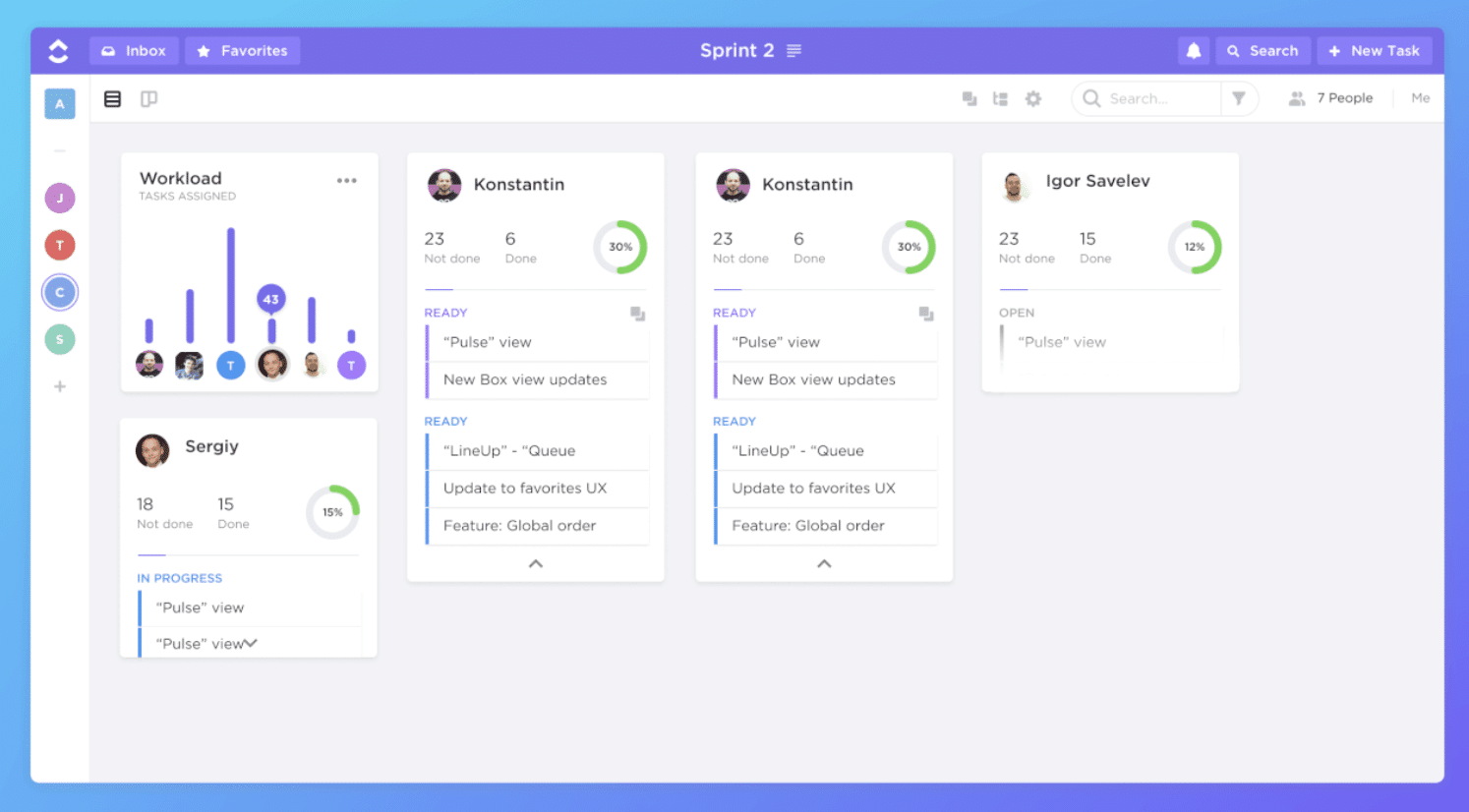
ClickUp is part of our list of best Basecamp alternatives for a few reasons. First, it is free forever — this is great if you’re working with a limited budget. Second, Basecamp can get cluttered, and ClickUp is very streamlined and straightforward. ClickUp also has many features that Basecamp doesn’t have, including custom statuses, email capabilities, goals, slash commands, and checklists.
To see how ClickUp stacks up against another tools on the market, check out our full guide to ClickUp alternatives.
11. Workfront
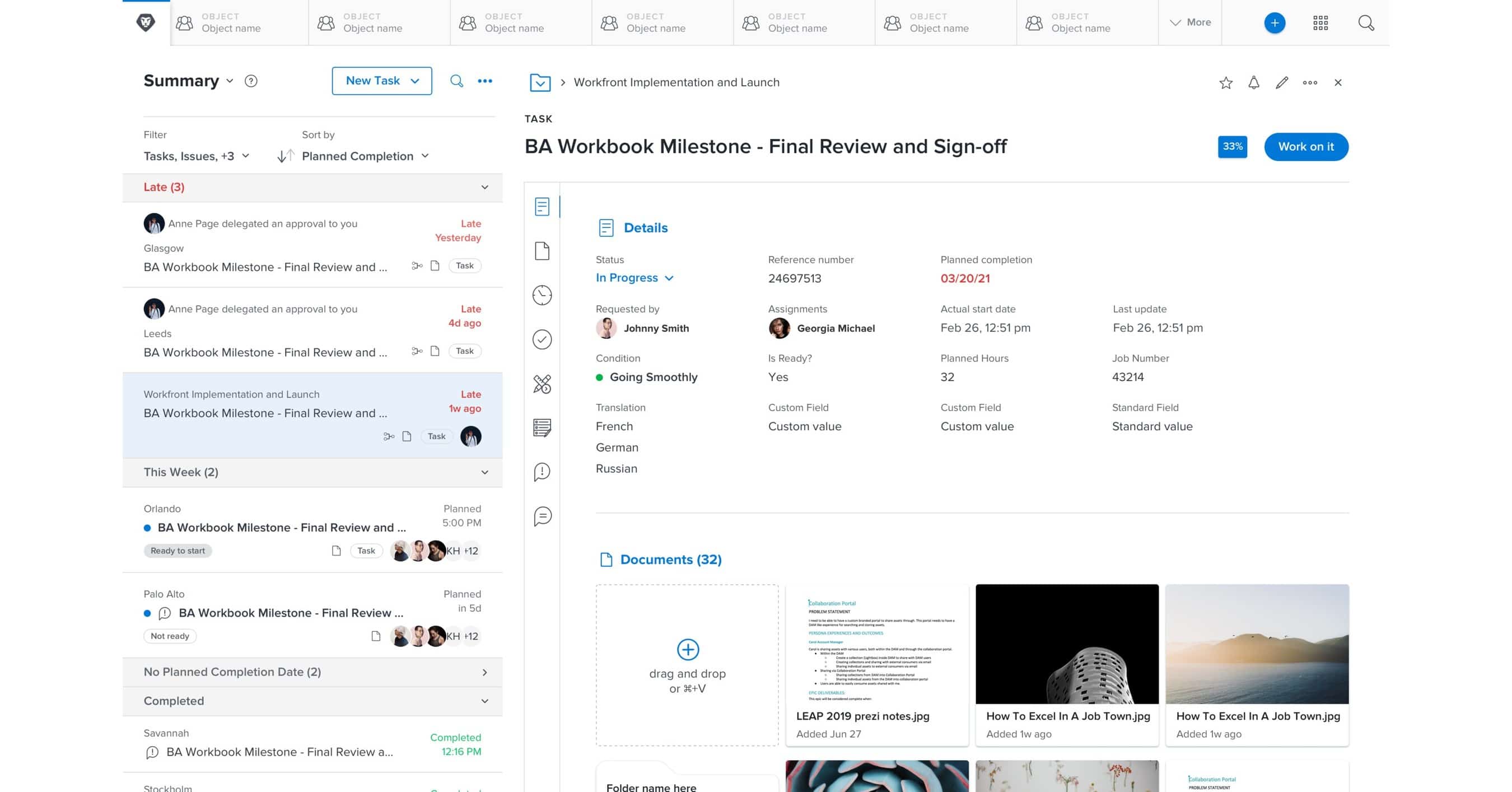
Workfront is a highly customizable Basecamp alternative that helps users to manage their projects. Features include setting up priorities for tasks, assigning them to specific team members, managing an entire project, and reviewing its progress. Besides automating the whole workflow, this project management software also provides a centralized platform for digital collaboration and integration with various other services.
If you want a tool made for true enterprise use, Workfront is a great Basecamp alternative. Workfront also has settings that allow for ample agile PM as well as budget tracking, which is why it’s on our list of best Basecamp alternatives.
12. Flow
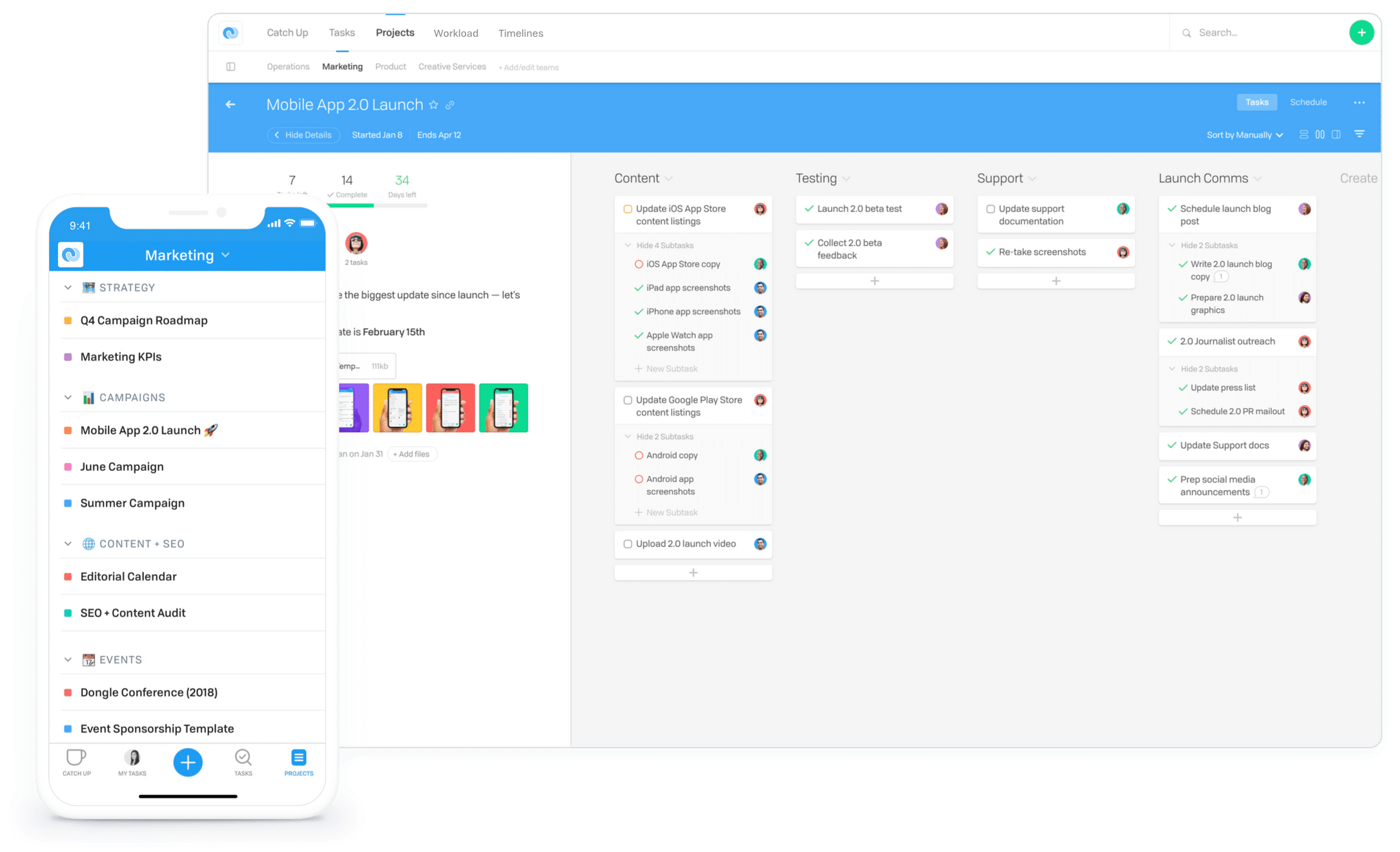
Flow is a great Basecamp alternative that helps teams knit together tasks, projects, timelines, and conversations in one central platform. With Flow, you can set priorities and track tasks throughout their lifecycle, or use project dashboards to take a macro-level look at how your team is working towards goals within several projects.
In terms of views, you can utilize timeline, workload, or Gantt views to glean insight into team workload and overall timelines. When communicating with teammates, you can attach files to comments and even turn comments into tasks themselves. Overall, Flow is really easy to use and fun to work with, which is why it’s on our list of best Basecamp alternatives.
13. Proofhub
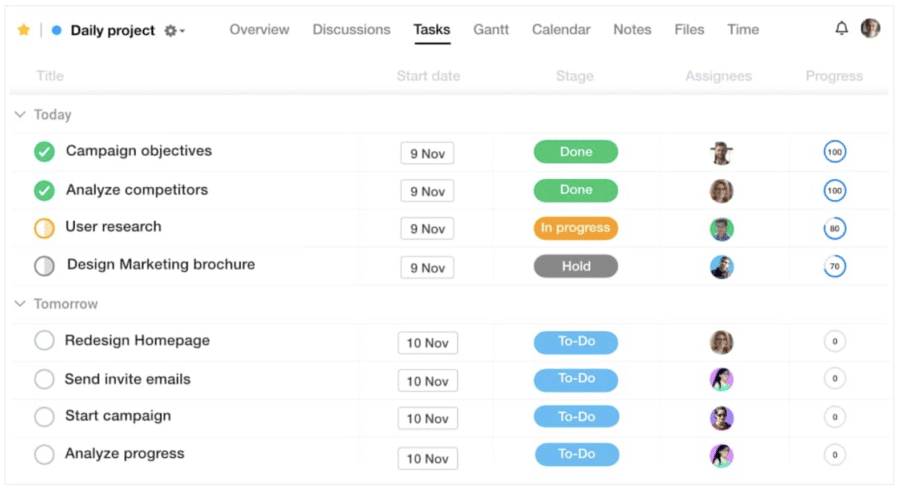
ProofHub is a delightful yet powerful cloud based project management and team collaboration software. Proofhub makes it easier for teams to plan, collaborate and deliver projects on time. From the day-to-day tasks to scheduling important events, it helps teams handle almost everything in one place.
If you’re looking for Basecamp alternatives, ProofHub offers all of Basecamp’s core project management tools as well as additional collaboration tools such as time tracking, team chat, and more. It’s easy to setup and use, 100% web-based with access from anywhere, mobile-friendly with a great app for iOS and Android devices — and it’s pricing model is a set monthly cost, no matter how many users you have.
14. ProProfs Project
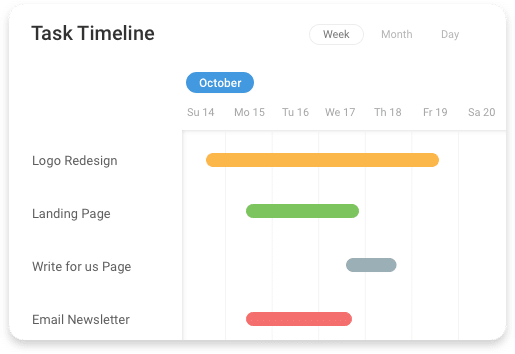
ProProfs Project is considered a strong Basecamp alternative due to its robust project visualization capabilities. Its interactive Gantt charts provide a high-level overview of all your projects from start to finish, while its Kanban board offers increased visibility into tasks in real-time. In addition, its Calendar view lets you keep an eye on all your scheduled tasks at a glance.
The tool’s time tracking ability also comes in handy to monitor team performance and project progress on the go. Moreover, its customizable dashboard allows you to make changes and adjust project workflows on the fly. However, if you’re looking for a solution that offers a mobile-friendly application, ProProfs might not fit the bill for you as it lacks multi-device sync capabilities.
In terms of pricing, ProProfs Project is more affordable than Basecamp, with plans starting at $2 and $4 per user per month. You can even try its 15-day free trial version and see whether it suits your project and team needs.
15. Indy
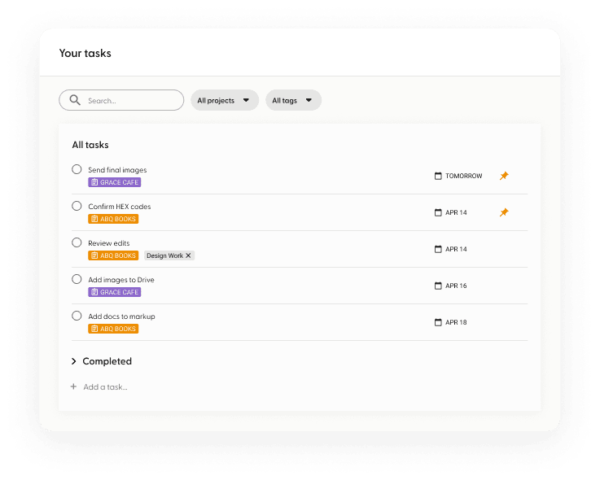
Indy is a simple software solution to help freelancers manage their proposals, contracts, and invoices as well as maintain control over their tasks, deadlines, and contacts. Freelancers want to use a system that doesn’t require a long training course to be useful, and Indy delivers.
Indy has a clean interface and project flow. The core of Indy’s software is the Projects tool. Here, you can coordinate your tasks, time tracking, deadlines, and files for every project you’re working on. Your tasks can be displayed in a simple list or on a Kanban-style board for quick overview.
There are also dedicated tools for creating and sending proposals, contracts, and invoices with templates to make the process go faster. It also includes tools for managing customer relationships and creating information forms that can be embedded in websites, emails, and as HTML code snippets.
16. Teamwork
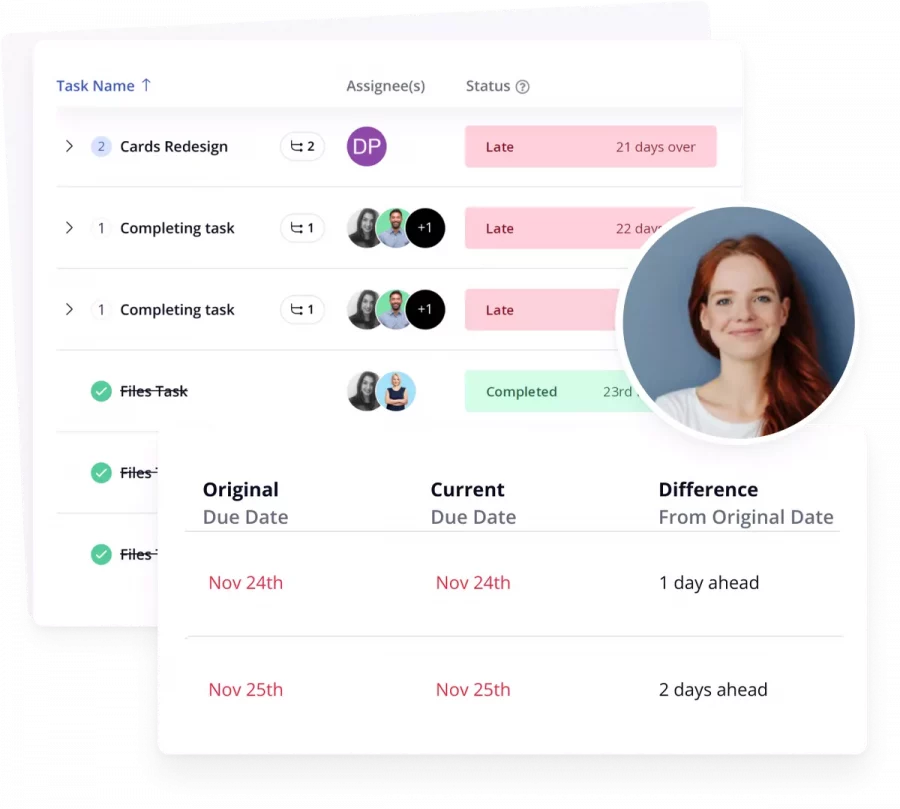
Teamwork is a Basecamp alternative to task and project management. While Basecamp is great if you need an enhanced to-do list, Teamwork offers flexibility and powerful features for teams who work in complex projects. For example, Teamwork offers features that Basecamp doesn’t such as time tracking, sub-tasks and task dependency. The solution offers pre-built templates to make it easy-to-use and operate. Teamwork offers integrations with tools such as Slack, Google Drive, Dropbox and others. The platform also offers different visual representation of projects, such as Gantt charts view. Pricing: Free for individuals and small teams. Paid plan starts at $10 monthly for a minimum of 3 users.
17. Toggl
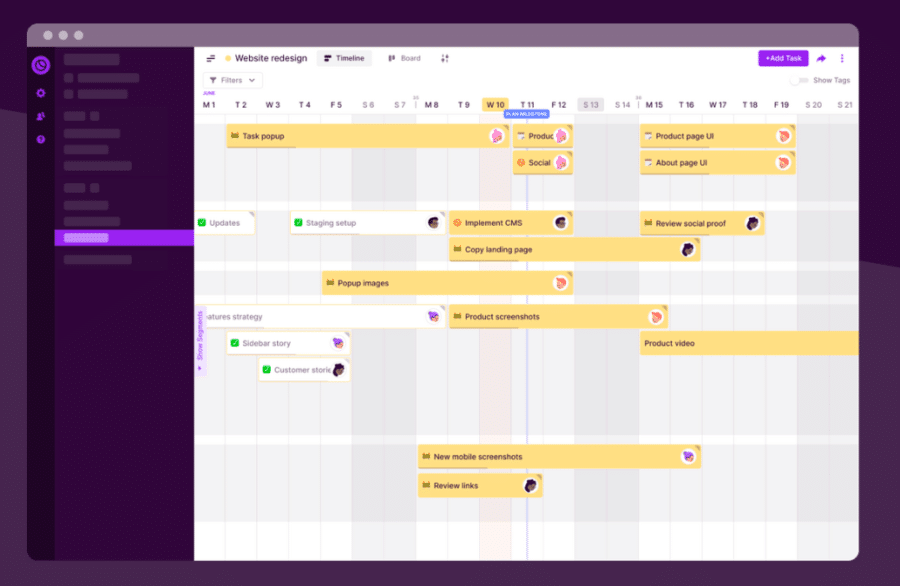
Toggl is a simple project planning and collaboration tool. Unlike Basecamp, which can be very rigid to work with, Toggl drag-and-drop interface allows flexibility when creating a project and customizing it to each team. The software allows you to see task statuses, set deadlines, add subtasks, and define task estimates. Plus, the tag feature for tasks makes searching, filtering and classifying projects and segments easier.
Toggl is free for solo users. The premium plan costs $9 per user/per month and comes with additional features such as team planning, recurring tasks, and time tracking.
18. Scoro
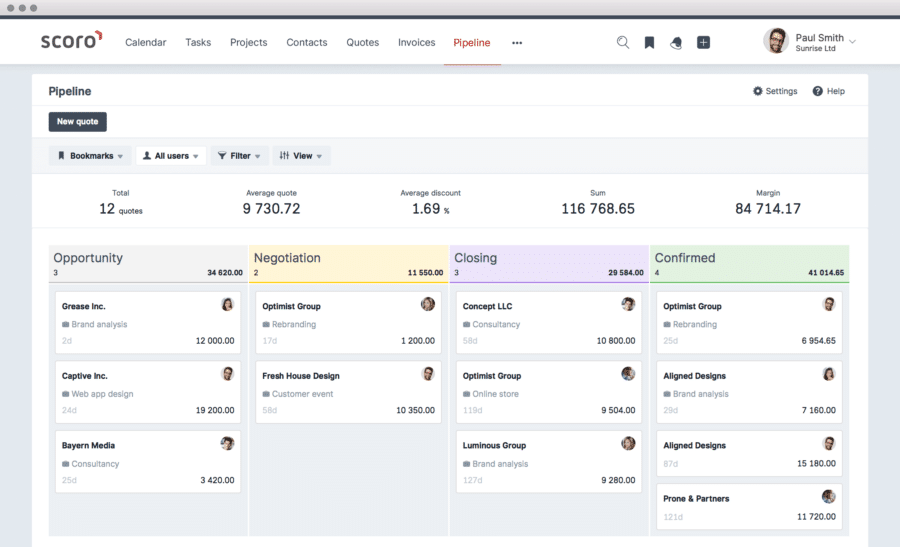
Scoro is a great alternative to Basecamp because it offers powerful features to improve performance such as agile methodologies, Gantt view, Kanban board view, issue management and time & expense tracking. Scoro’s KPI dashboard also offers a broader overview of each aspect of your business, giving you the ability to keep track of your projects, workflow, and financial KPIs in real-time. On the downside, Scoro doesn’t have a free version, only a free trial, while Basecamp has a free version with limited features.
Scoro’s pricing begins at $26 per user/month for a minimum of 5 users. The Essential plan includes projects, calendars, task list & task board, contacts & customers, quotes, invoices & receipts, bills, dashboards and a summary of financial reports.
19. Freedcamp
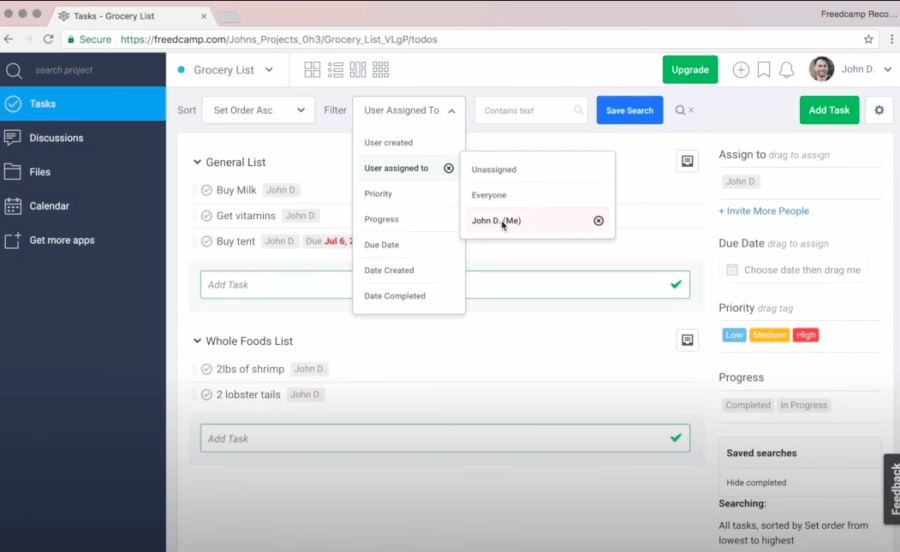
Freedcamp is basically a free version of Basecamp. The platform has most of the features Basecamp offers, such as task list, Kanban board, subtasks, Gantt Chart, calendar, issue tracker and time. However, Freedcamp doesn’t allow you to have more than 3 columns on the Kanban board, plus scheduling of repeating tasks can be difficult as it doesn’t show up in the long term view of projects. One of the best advantages of Freedcamp is that the project management software gives free unlimited storage for any number of projects to your whole team. The platform’s paid plan starts at $1.49 per user/per month and you can also try a 14 days-free trial on the Pro plan.
20. Airtable
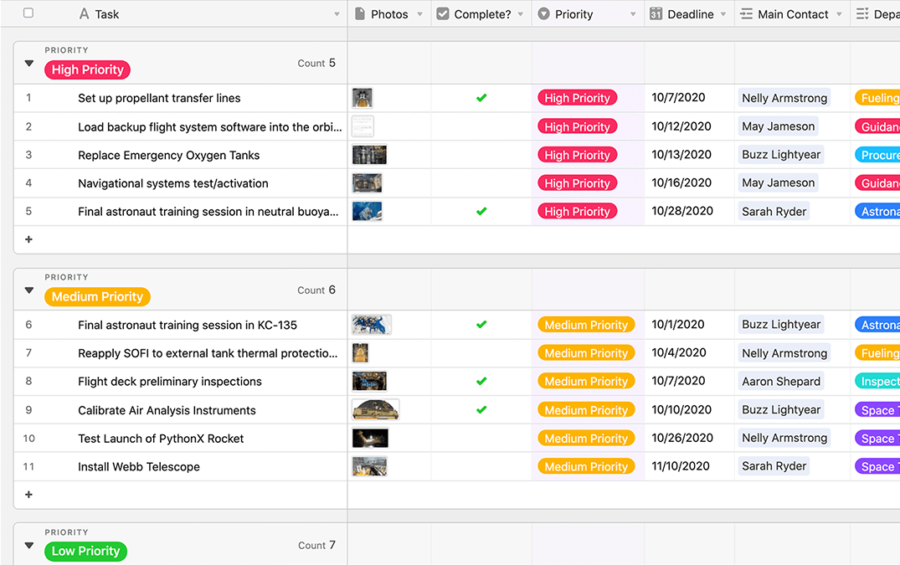
Airtable is a low-code and easy-to-follow alternative platform to Basecamp. The software allows integrations with the most popular tools, including Google Workspace, Slack, Facebook and Twitter. One of the big highlights of Airtable as project management is the interface and real collaborative experience, with the ability to see projects and tasks on grid-like view, Kanban boards, Gantt charts, and calendar views. Regarding onboarding, Airtable and Basecamp offer live online webinars, documentation, and video training.
Airtable has a free plan that includes up to 5 creators or editors; you can create unlimited bases, unlimited commenter and read-only users, up to 1,200 records per base and a total of 2GB of attachment per base. The Plus plan costs $10/month and offers several premium features such as custom branded forms and automatic table syncing.
To learn about other similar tools on the market, check out our guide to the top Airtable alternatives.
21. nTask
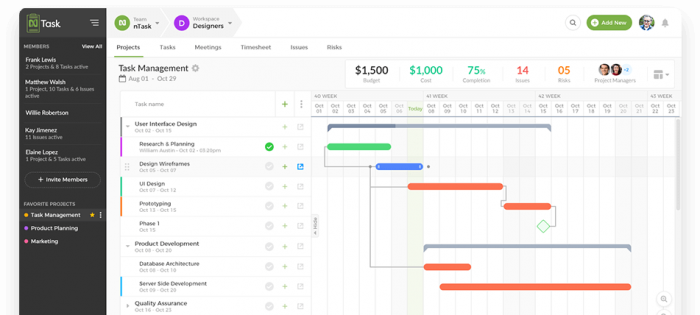
Another Basecamp alternative on the list is nTask. The application is an incredibly minimalistic task management and project management tool that allows you to make sure that all of your tasks and processes are well tracked and managed according to the needs and requirements of the project.
This tool is jam-packed with a lot of amazing features that make it a user favorite like team management, risk management, Gantt charts, Kanban boards, issue tracking, time tracking and timesheet management. The application offers a free trial which allows you to test out all of these features at no cost. And if you want to purchase the paid subscription, plans start at $3 per user per month.
22. Notion
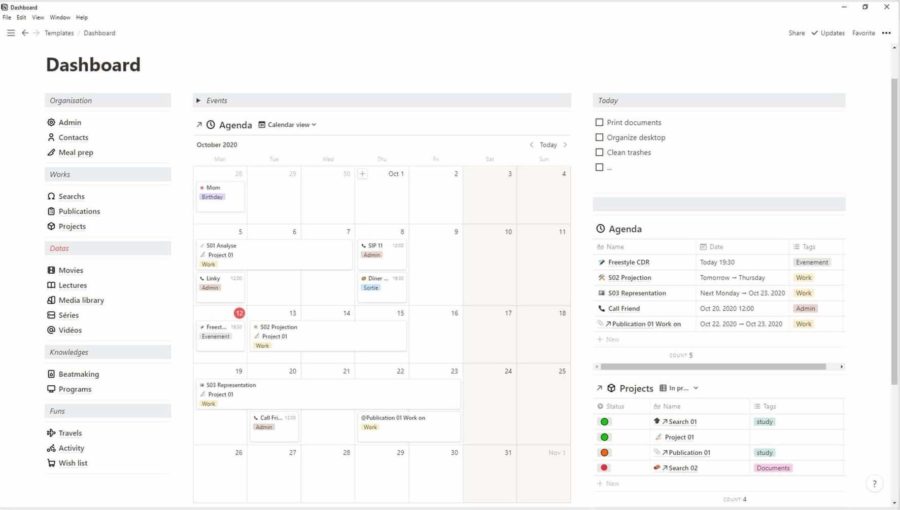
Notion is a note taking software that goes beyond notes and allows users to create a highly customizable interface for working with teams. Similar to Basecamp, you can create a team dashboard page that’s broken down by departments and further distributed by tasks and teams. Notion does seem to have a bit more of a learning curve because of its customizability, so they made sure to include lots of premade templates catered to the most common industry departments. Projects and tasks have the ability to leave comments in the different view options and help to maintain constant communication among team members. Notion is also available across multiple platforms, including having its own mobile apps.
If you’re looking for a software that can be customized to fit very specific needs across a wide range of possibilities, Notion may be right up your alley. Notion has a free plan for individuals to get started with and offers paid subscriptions for additional functionality as well as for team collaboration.
To continue your research, check out these top Notion Alternatives that combine project management and note-taking.
23. Smartsheet
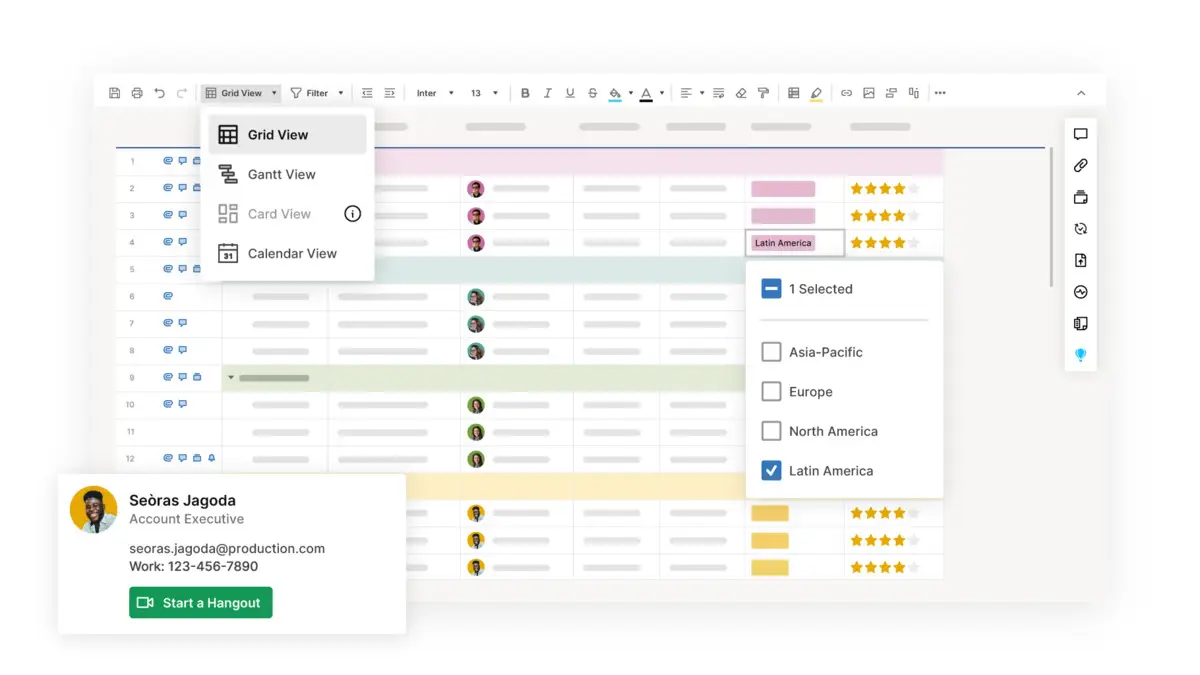
If you are a fan of spreadsheets, look at Smartsheet as a Basecamp alternative. As a project management solution, Smartsheet can be used within an array of roles and industries, such as marketing, construction, education, and finance. Smartsheet lets you easily create Gantt charts and graphs, giving you many ways to view your projects as they progress. Collaborate with teams, automate tasks, manage portfolios and more in an easy-to-use and intuitive dashboard. Smartsheet also integrates with over 80 apps, so you can connect to your existing software without the need to start tasks from scratch.
Smartsheet lets you try their software free for 30 days and their subscription plans start at $7/user/month. You can also explore these top Smartsheet Alternatives to continue researching other similar tools.
24. MeisterTask
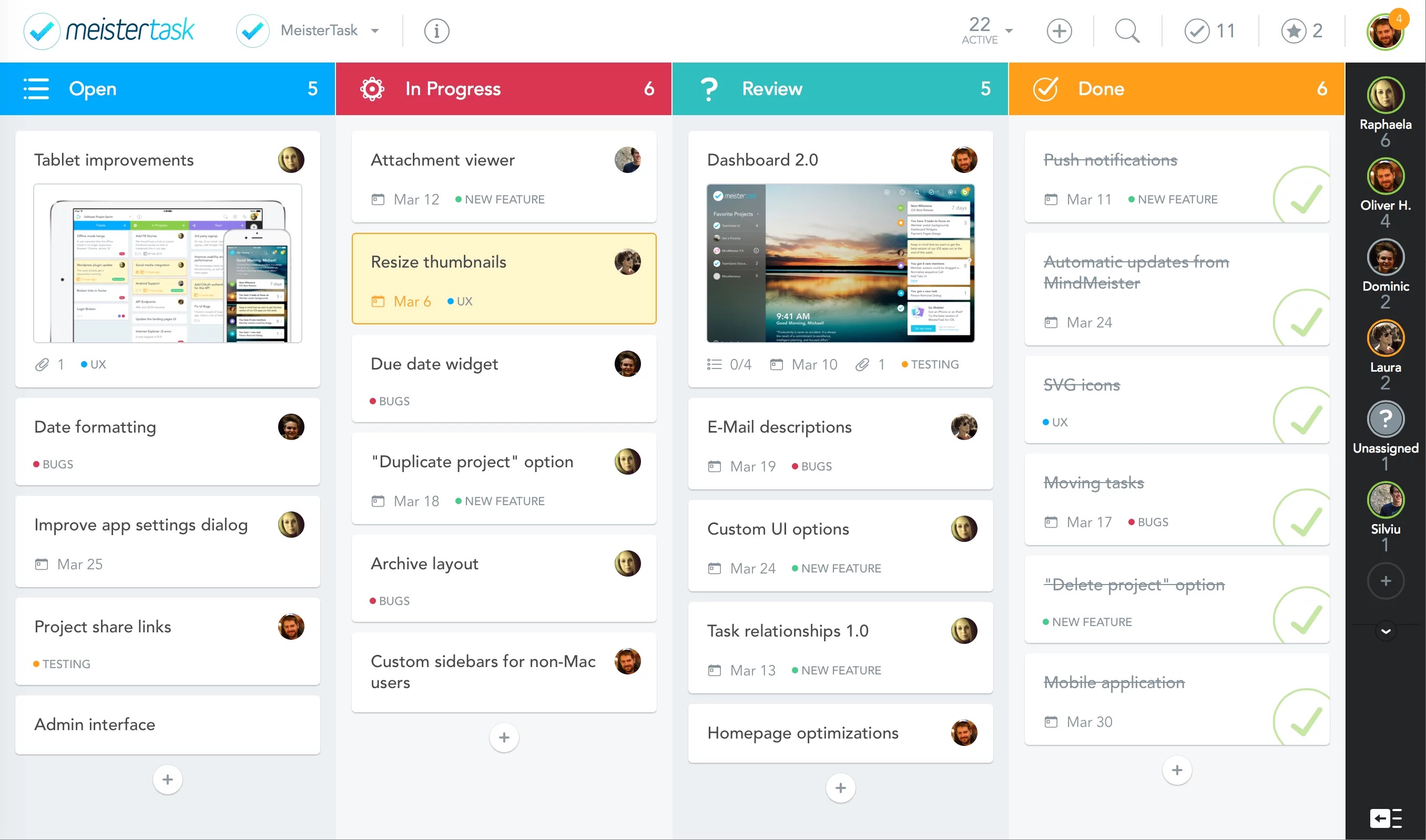
MeisterTask is a Basecamp alternative for managing and planning projects. The software has customizable Kanban boards and collaborating features. It lets you assign tasks, upload attachments and leave comments across multiple devices with native desktop and mobile apps. Basecamp might be more popular than MeisterTask, but you might be surprised to learn that MeisterTask offers agile methodologies and backlog management — two key features that Basecamp lacks.
While MeisterTask doesn’t offer action item tracking or activity news feed features, the software has stellar customer service, including by phone, another important service that Basecamp doesn’t offer.
Other features include time tracking, unlimited automations, WIP limits, recurring tasks, and more. A free Basic plan allows a single user to work on up to three MeisterTask projects with plenty of tools to get you started with your project management. If you want additional features and the ability to work on unlimited projects, MeisterTask has plans starting at $14.49 per month.
25. Paymo
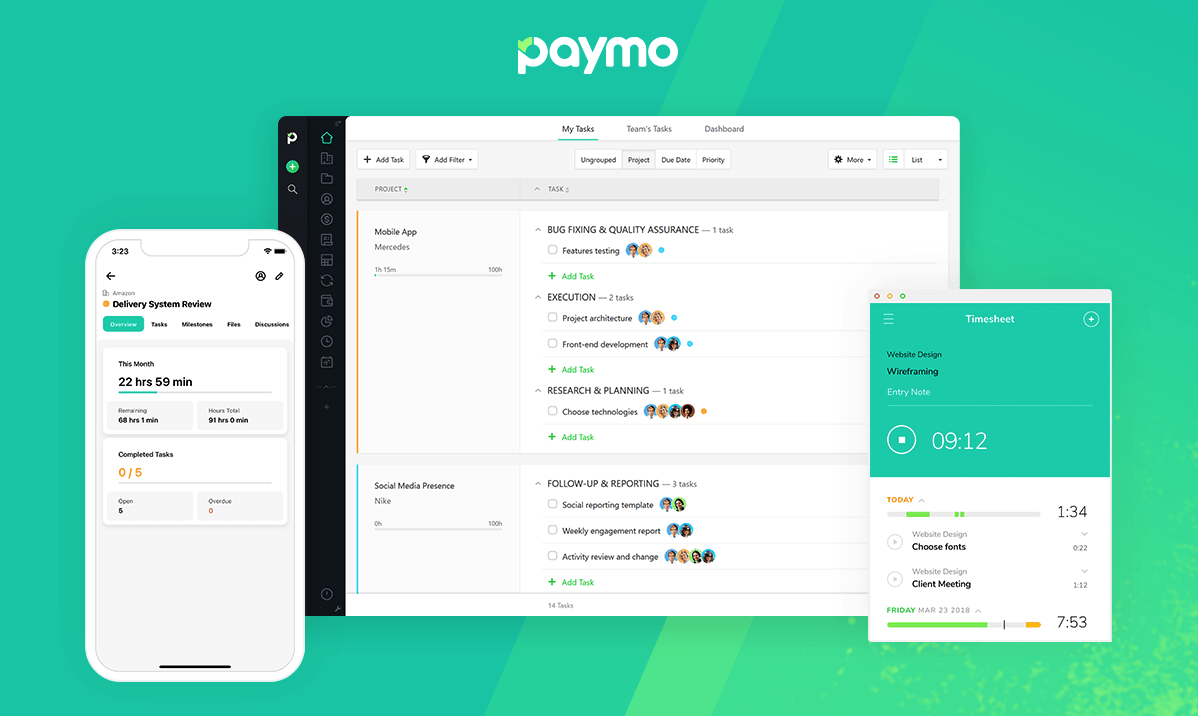
Paymo is another project management tool alternative to Basecamp and it comes equipped with a range of features that make it a comprehensive solution for managing projects. Paymo is very user-friendly making onboarding easy for teams of all sizes. It offers a range of customization options that allow you to tailor the platform to meet the unique needs of your team.
Paymo has an intuitive task management system that lets you easily create, assign, and manage tasks, as well as set deadlines and track progress. You can also track the time spent on tasks which makes it easy to bill clients accurately. With Paymo, you have a range of reporting options, giving you plenty of ways to analyze project data and make informed decisions. And communication with team members is simple, and includes real-time status updates, so you can stay up-to-date on project progress at all times.
Paymo offers a free plan for personal use and for additional functionality, they have paid plans that start at $4.95/user/month.
26. Kanbanize
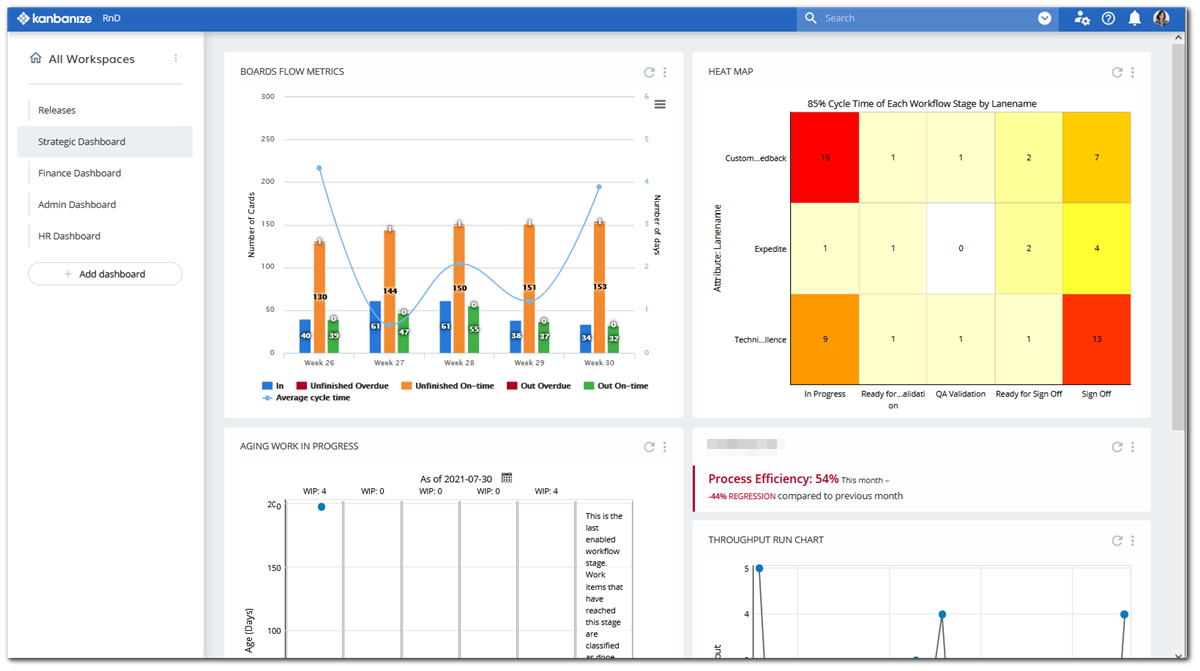
Kanbanize is a great option to Basecamp with its unique strengths and capabilities, notably its emphasis on visual project management through the use of Kanban boards. It allows teams to easily visualize the status of each task, identify bottlenecks, and ensure smooth project progression. While Basecamp doesn’t offer an appealing design and is often seen as clunky, Kanbanize is clean, intuitive and visually easier to use.
Kanbanize also offers advanced analytics and reporting features that provide valuable insights into project performance and team productivity. Teams can track metrics to make data-driven decisions with robust analytics that allows deeper visibility into their projects along with file sharing, communication tools, and reporting. Kanbanize lets users try it for free for 14 days and plans start at $149/month with several add-ons available based on a company’s needs.
Are there any other great tools that you’d recommend people try out as a one of the best Basecamp alternatives? Let us know in the comments below.


